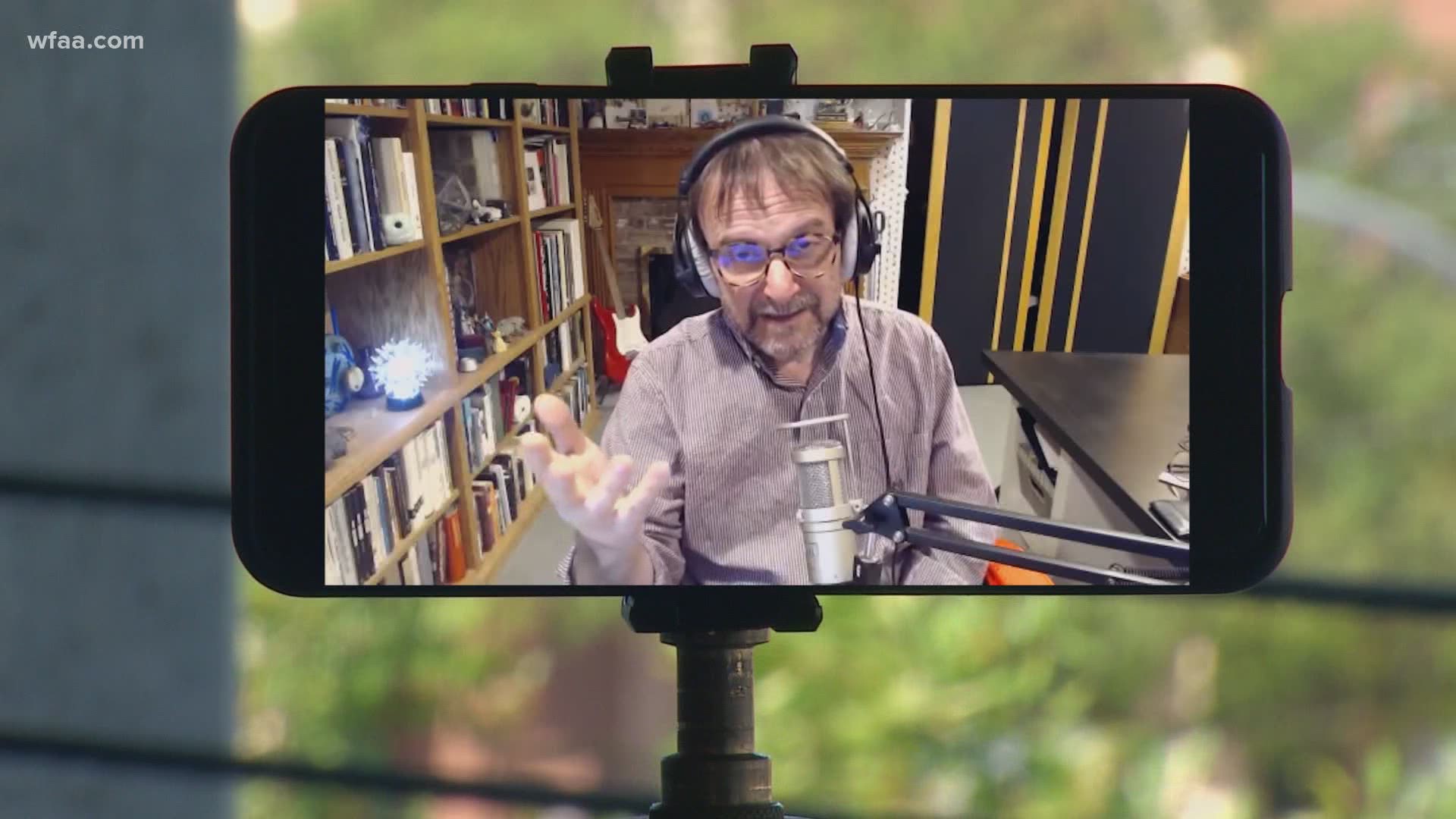Vincent Racaniello is a professor at Columbia University and has studied viruses for around 40 years.
He’s also the host of This Week In Virology, a podcast where the focus lately has been COVID-19.
“I live, eat, and think, viruses 24/7 pretty much,” Racaniello said.
The podcast has 25 times the listeners it did in January and receives more than 100 emailed questions a day now. Racaniello says many have the same questions or comments.
“A lot of people despair and say, ‘Do I have to stay home until next summer?'" Racaniello said. “The answer is, no, we're going to slowly get out this summer, I think in the fall, we'll go back to school.”
On his podcast, Racaniello dispels common myths, like that the virus was created in a lab.
“We have the sequence of this virus,” Racaniello said. “We know it's a bat virus basically there's just no way anyone could have made this and released it from a lab it's quite clear.”
He also says to not pay much attention to stories about the virus mutating.
“There are no more virulent strains than others. There's no more transmissible. There's just one strain and it seems to be pretty much all the same,” he said.
Success in South Korea
He points to countries like South Korea as successes at living with the virus because of a pandemic plan. They quickly increased testing to be widespread, rapidly multiplied mask production and grew hospital capacity.
“That's really that's been amazing at keeping their numbers down it actually worked and they didn't have to close down their country,” Racaniello said. “I think schools closed, and it was slightly restricted travel, I believe, but people were still able to go to work.”
As states reopen, he emphasizes extensive random testing and face masks.
“The virus is still around, and it can still infect you so you have to be careful when you're going back to work,” Racaniello said. “You have to take precautions still, and then only if we do that, can we limit the spread”
It’s still unclear if those who have already been infected are immune.
“The real question is, what does this mean does this mean you're protected,” Racniello said. “We don't know the answer to that yet. People, when they're infected with a virus, they make antibodies. Some of those antibodies protect you, and the others don't.”
Vaccines, medications
There’s also focus on the vaccine timeline with 60-70 vaccines in development now. Racaniello believes having one available by this fall is very unlikely.
“I could be surprised,” he said. “I wouldn’t be upset as long as it's safe and effective that works for me, but I would say based on my experience, Summer 2021 to happen sooner that'd be great.”
As pharmaceutical companies work on treatments, Racaniello says they could have created drugs after SARS in 2003.
“We knew after SARS that bats in China had SARS-like coronavirus. We didn't know that before, and it would have been pretty straightforward to get a few of those isolated and develop drugs that blocked them,” Racaniello said.
That would've required companies to invest in developing such drugs.
“That's not the way companies work, so you know if somehow we can get around that model, you know even governments have to participate, nonprofits, we could have been ready.”
He says both the public and officials should learn lessons before the next pandemic happens.
“There's no question it's going to happen,” he said. “There is no question. Because we had this one doesn't mean there won't be another, so we need to be ready for it.”

